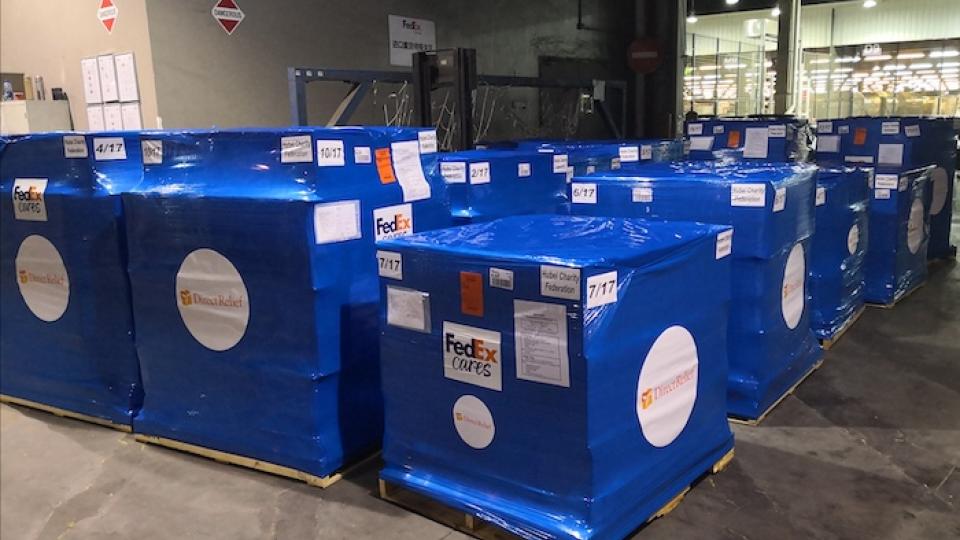Direct Relief and FedEx team up to deliver humanitarian help
“FedEx is a company run by an exceptional group of people. To see them using their expertise for humanitarian purposes is inspiring.”
Heather Bennett’s testimony exemplifies why we started our FedEx Cares Delivering for Good initiative, where we lend our global network and logistics expertise to organizations with mission-critical needs to help communities before, during and after crises.
Bennett is the vice president of partnerships and philanthropy for Direct Relief, an international nonprofit FedEx has worked with for nearly three decades to deliver medical relief supplies to healthcare professionals in vulnerable communities where disaster has struck.
While Direct Relief expertly manages the relationships to obtain the needed supplies, they need help getting the supplies to people who need them.
“It didn’t make sense for us to reinvent the wheel when FedEx already had established operations in these areas,” explained Bennett. “Their charter flights and transportation support have been game-changing for us and allowed us to scale.”
Planning for a charter usually begins 7-10 days before it departs. While Direct Relief is getting the cargo together, FedEx is organizing the flight, lining up on-the-ground support to meet the plane, and researching the destination airport’s current conditions, safety, and security. Simultaneously, FedEx trucks arrive at Direct Relief’s warehouse in Santa Barbara, CA to take the supplies to our facility in Memphis, Tennessee, where they are then loaded onto a plane.
Dave Lange, head of Charter Operations for FedEx, says Direct Relief is a great relief organization to work with on these missions – and that collaboration is key.
Daily conference calls between FedEx and Direct Relief review the size of the load, the proper build out to optimize space on each flight, the required paperwork for dangerous goods, customs, and clearances.
“Lead time is always our main concern, but we have an extensive checklist to confirm everything is covered,” explained Lange. “At the end of the day, people’s lives are at stake and it’s vital we act quickly, safely and securely to deliver the supplies on time.”
Last summer, FedEx worked with Direct Relief on three flights over the span of six weeks to deliver 130 tons of medical aid to Mumbai and Delhi, India. The supplies included more than 2 million face masks, more than 1 million gloves, nearly 5,000 oxygen concentrators and other PPE items.
Then, when the crisis in Ukraine began, FedEx immediately approached Direct Relief and asked what we could do to help. “FedEx wanted to move faster than we could because of the logistics of working in a war zone and the uncertainty about getting supplies into the country,” said Bennett. “But that’s a good problem to have – A company that understands the importance of our work and is so eager to support our mission.”
In the end, three flights were organized to deliver lifesaving supplies to Warsaw, Poland. These shipments included 76 tons of medical aid that will impact at least 1.7 million people. Items included an emergency field hospital, emergency and chronic disease medicines, trauma and wound care, oxygen concentrators and more.
“We are honored to be a small part of the work Direct Relief is doing,” said Lange. “We understand they have an important job to do and we want to assist with that. As a company, we are a global citizen and a part of the fabric of the cities and countries being supported. We want to make sure we do our part.”

